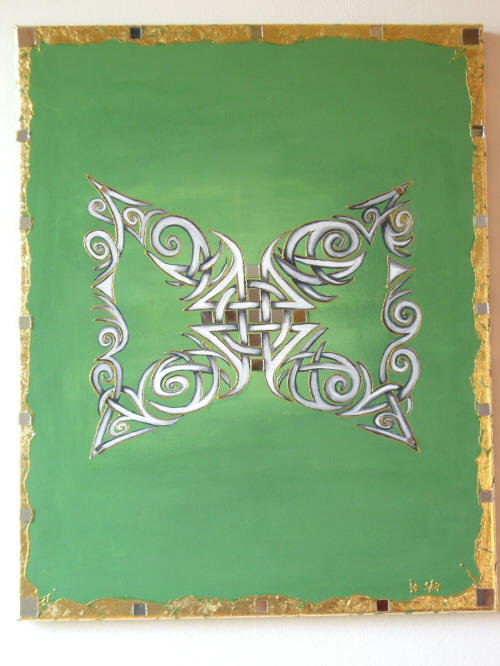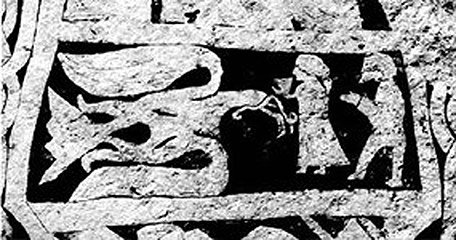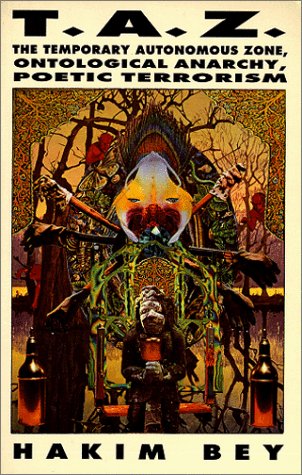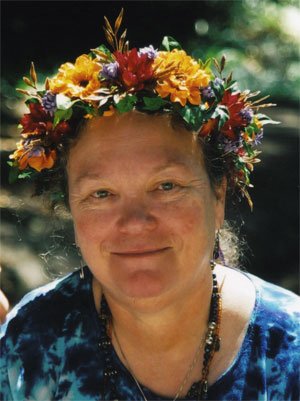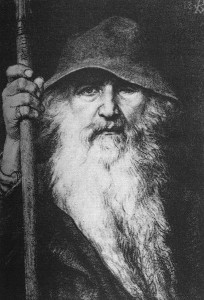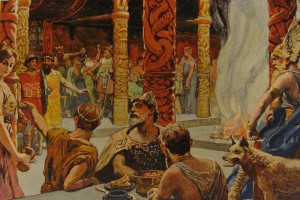This is the creation of the world, that the pain of division is as nothing, and the joy of dissolution all. (AL I, 30) The Perfect and the Perfect are one Perfect and not two; nay, are none! Nothing is a secret key of this law. (AL I, 45 – 46)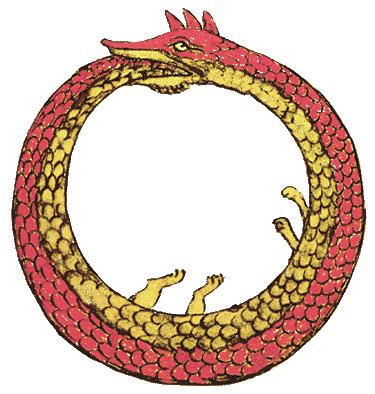
In the centre of the cosmos there is no throne, but the sound of thunder! (Hubert Veðrfölnir)
Life behaves as if it were going on. The universe behaves as if Gods exist. The Psyche is not bound by the laws of time and space…
“I begin with nothingness. Nothingness is the same as fullness. In infinity full is no better than empty. Nothingness is both empty and full. As well might ye say anything else of nothingness, as for instance, white is it, or black, or again, it is not, or it is. A thing that is infinite and eternal hath no qualities, since it hath all qualities.
This nothingness or fullness we name the PLEROMA. Therein both thinking and being cease, since the eternal and infinite possess no qualities. In it no being is, for he then would be distinct from the pleroma, and would possess qualities which would distinguish him as something distinct from the pleroma.
In the pleroma there is nothing and everything. It is quite fruitless to think about the pleroma, for this would mean self-dissolution.
CREATURA is not in the pleroma, but in itself. The pleroma is both beginning and end of the created beings. It pervadeth them, as the light of the sun everywhere pervadeth the air. Although the pleroma pervadeth altogether, yet hath created being no share thereof, just as a wholly transparent body becometh neither light nor dark through the light which pervadeth it. We are, however, the pleroma itself, for we are a part of the eternal and the infinite. But we have no share thereof, as we are from the pleroma infinitely removed; not spiritually or temporally, but essentially, since we are distinguished from the pleroma in our essence as creatura, which is confined within time and space.
Yet because we are parts of the pleroma, the pleroma is also in us. Even in the smallest point is the pleroma endless, eternal, and entire, since small and great are qualities which are contained in it. It is that nothingness which is everywhere whole and continuous. Only figuratively, therefore, do I speak of created being as part of the pleroma. Because, actually, the pleroma is nowhere divided, since it is nothingness. We are also the whole pleroma, because, figuratively, the pleroma is the smallest point (assumed only, not existing) in us and the boundless firmanent about us. But wherefore, then, do we speak of the pleroma at all, since it is thus everything and nothing?
I speak of it to make a beginning somewhere, and also to free you from the delusion that somewhere, either without or within, there standeth something fixed, or in some way established, from the beginning. Every so-called fixed and certain thing is only relative. That alone is fixed and certain which is subject to change.
What is changeable, however, is creatura. Therefore is it the one thing which is fixed and certain; because it hath qualities: it is even quality itself.
The question ariseth: How did creatura originate? Created beings came to pass, not creatura: since created being is the very quality of the pleroma, as much as non-creation which is the eternal death. In all times and places is creation, in all times and places is death. The pleroma hath all, distinctiveness and non-distinctiveness.
Distinctiveness is creatura. It is distinct. Distinctivness is its essence, and therefore it distinguisheth. Wherefore also he distinguished qualities of the pleroma which are not. He distinguisheth them out of his own nature. Therefore he must speak of qualities of the pleroma which are not.
What use, say ye, to speak of it? Saidst thou not thyself, there is no profit in thinking upon the pleroma?
That said I unto you, to free you from the delusion that we are able to think about the pleroma. When we distinguish qualities of the pleroma, we are speaking from the ground of our own distinctiveness and concerning our own distinctiveness. But we have said nothing concerning the pleroma. Concerning our own distinctiveness, however, it is needful to speak, whereby we may distinguish ourselves enough. Our very nature is distinctiveness. If we are not true to this nature we do not distinguish ourselves enough. Therefore must we make distinctions of qualities.
What is the harm, ye ask, in not distinguishing oneself? If we do not distinguish, we get beyond our own nature, away from creatura. We fall into indistinctiveness, which is the other quality of the pleroma. We fall into the pleroma itself and cease to be creatures. We are given over to dissolution in nothingness. This is the death of the creature. Therefore we die in such measure as we do not distinguish. Hence the natural striving of the creature goeth towards distinctiveness, fighteth against primeval, perilous sameness. This is called the PRINCIPIUM INDIVIDUATIONIS. This principle is the essence of the creature. From this you can see why indistictiveness and non-distinction are a great danger for the creature.
We must, therefore, distinguish the qualities of the pleroma. The qualities are PAIRS OF OPPOSITES, such as:
The Effective and the ineffective.
Fullness and Emptiness.
Living and Dead.
Difference and Sameness.
Light and Darkness.
The Hot and the Cold.
Force and Matter.
Time and Space.
Good and Evil.
Beauty and Ugliness.
The One and the Many.
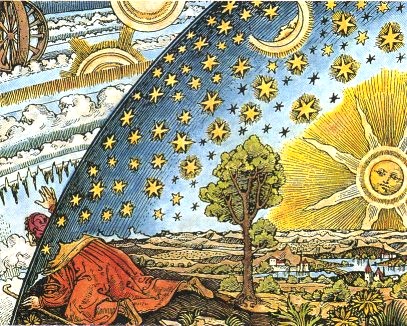
The pairs of opposites are qualities of the pleroma which are not, because each balanceth each. As we are the pleroma itself, we also have all these qualities in us. Because the very ground of our nature is distinctiveness, which meaneth:
- These qualities are distinct and separate in us one from the other; therefore they are not balanced and void, but are effective. Thus are we the victims of the pairs of opposites. The pleroma is rent in us.
- The qualities belong to the pleroma, and only in the name and sign of distinctiveness can and must we possess and live them. We must distinguish ourselves from qualities. In the pleroma they are balanced and void; in us not. Being distinguished from them delivereth us.
When we strive after the good or the beautiful, we thereby forget our own nature, which is disinctiveness, and we are delivered over to the qualities of the pleroma, which are pairs of opposites. We labor to attain the good and the beautiful, yet at the same time we also lay hold of the evil and the ugly, since in the pleroma these are one with the good and the beautiful. When, however, we remain true to our own nature, which is distinctiveness, we distinguish ourselves from the good and the beautiful, therefore, at the same time, from the evil and ugly. And thus we fall not into the pleroma, namely, into nothingness and dissolution.
Thou sayest, ye object, that difference and sameness are also qualities of the pleroma. How would it be, then, if we strive after difference? Are we, in so doing, not true to our own nature? And must we none the less be given over to the sameness when we strive after difference?
Ye must not forget that the pleroma hath no qualities. We create them through thinking. If, therefore, ye strive after difference or sameness, or any qualities whatsoever, ye pursue thoughts which flow to you out of the pleroma: thoughts, namely, concerning non-existing qualities of the pleroma. Inasmuch as ye run after these thoughts, ye fall again into the pleroma, and reach difference and sameness at the same time. Not your thinking, but your being, is distinctiveness. Therefore not after difference, ye think it, must ye strive; but after YOUR OWN BEING. At bottom, therefore, there is only one striving, namely, the striving after your own being. If ye had this striving ye would not need to know anything about the pleroma and its qualities, and yet would ye come to your right goal by virtue of your own being. Since, however, thought estrangeth from being, that knowledge must I teach you wherewith ye may be able to hold your thought in leash. … God is not dead; he is as much alive as ever. God is the created world, inasmuch as he is something definite and therefore he is differentiated from the Pleroma. God is a quality of the Pleroma and everything that I have stated in reference to the created world is equally true of him.
God is distinguished from the created world, however, inasmuch as he is less definite and less definable than the created world in general. He is less differentiated than the created world, because the ground of his being is effective fullness; and only to the extent that he is definite and differentiated is he identical with the created world; and thus he is the manifestation of the effective fullness of the Pleroma.
Everything that we do not differentiate falls into the Pleroma and is cancelled out along with its opposite. Therefore if we do not discern God, then the effective fullness is cancelled out for us. God also is himself the Pleroma, even as every smallest point within the created world, as well as within the uncreated realm, is itself of the Pleroma.
The effective emptiness is the being of the Devil. God and Devil are the first manifestations of the nothingness, which we call the Pleroma. It does not matter whether the Pleroma is or is not, for it cancels itself out in all things. The created world, however, is different. Inasmuch as God and Devil are created beings, they do not cancel each other out, rather they stand against each other as active opposites. We need no proof of their being ; it is sufficient that we must always speak about them. Even if they did not exist, the created being would forever (because of its own differentiated nature) bring them for out of the Pleroma.
All things which are brought forth from the Pleroma by differentiation are pairs of opposites; therefore God always has with him the Devil.
This interrelationship is so close, as you have learned, it is so indissoluble in your own lives, that it is even as the Pleroma itself. The reason for this is that these two stand very close to the Pleroma, in which all opposites are cancelled out and unified.” (C. G. Jung 1916: The Seven Sermons to the Dead)
Listen to the message of a modern prophet: Carl Gustav Jung.
There can be many reasons and triggers that can wake you up — wake you up to that kind of awareness, where the higher and hidden levels of the spectrum of human consciousness are experienced. I can remember a week some years ago, when I fasted for five days (no food at all, but much water and juice) and I meditated a lot and did other spiritual excercises from Crowley’s curriculum. And in one moment I realized my mind was so clear that I thought to myself: “How can life be any different again? It’s so easy to attain such a clear mind. I will never loose it again.” Believe me, it’s easier to fall asleep than to wake up again. The mind is such a tricky and sneaky thing! I guess nothing is easier than to travel the road of life asleep until one dies. Hence the need for a spiritual discipline. Nothing else helps. I tried it. Pills, thrills, drills and stuff that kills. But only slow and steady wins the race. Not the extreme and radical, but the golden middle. Neither this master nor that teaching, neither this order nor that secret ritual, neither this drug nor that technique. All that is needed is Here, all the that you have is the Now, the only one who can do the Work is you. “Who is the Great Master that makes the grass green?” You, the silent Watcher, you, the Ultimate Observer.
However, some times are special, when we feel that Wyrd leads us and just everything falls into place. Such times are often characterized by unusual events, books you find or get, people you meet, things you discover, music you hear and all kinds of weird / wyrd synchronicities.

There are many songs I remember that influenced me during that time of sheer beauty and madness. (Literally one friend of mine later had a psychosis, because the things we were experiencing and ‘consuming’ were just too much and too heavy.) Two songs I remember vividly and still love are Fokstua Hall and Svartálfar by Fire + Ice (like many other songs by this magical band) and now I found out that Sweyn has written these two songs! Things like that are magical, meaningful and empowering on a personal level, because it gives one’s life a direction and purpose. They confirm on a personal level that you were and are on the right track.
The Inmost Light and This Shining Shining World (read the text below) are my favourite songs by the band Current 93, a band that was also very important on my path for some time. This Shining Shining World kind of ‘converted’ me with the help of magic mushrooms and the Tibetan Book of the Dead from nihilism to the beauty and awe of Mystery. And thus I broke on through to the other side that greeted me behind the dead end of existentialism, which I thought (in my youthful arrogance and ignorance at age 15) was the last answer to all questions. But since I could gaze at the spinning of the Wyrd Sisters on “the other side” (or behind the curtain and beneath the obvious) I decided to open up to the possibility of magic and pantheism. To put it rather roughly: I concluded that we may be — maybe — more than a chunk of meat. Since then my interest for mysticism and the Occult became a vital part of my life. I came to know, rather than to believe (like Mr. Jung, listen to his words above), that we are more than we seem. The idea that there are secrets which are eternal mysteries — that is what I am interested in. And I am still going. Still seeking…
(In this process after having been a member of a rather known occult franternity I came to be opposed to so-called occultism, because the occultists assert that there are secrets, but what they think of as mysteries are rather conventional things that I now put in my pocket. These people just make any arbitrary thing a secret and simply conceal it from you for the sake of keeping it a secret to manipulate people or to simply create a commodity and they will tell you that these “secrets” can only be revealed to you if you become a member of this group, read this book or do something along those lines. This is utter nonsense. True mystery does not belong to anyone nor can it be taught, shown, revealed or attained.)
However, since then I was touched by the Ansuz flame. And I remember that when I had my second trip and looked through the Looking-Glass I did my first Staða of Dagaz — my absolutely most beloved Rune and the central mystery of a certain God, who is said to be a great Poet, Magician and Master of ecstatic Consciousness.
“But to love me is better than all things: if under the night-stars in the desert thou presently burnest mine incense before me, invoking me with a pure heart, and the Serpent flame therein, thou shalt come a little to lie in my bosom. For one kiss wilt thou then be willing to give all; but whoso gives one particle of dust shall lose all in that hour. … Put on the wings, and arouse the coiled splendour within you: come unto me!” (AL I, 61).
Since then I had only one sincere wish: to seek for spiritual liberation. Sounds naive, probably. But who doesn’t want to be free? Free from what, one is inclined to ask? Freedom is a myth, the Buddhist Master and Tantric teacher of “Crazy Wisdom”, Chögyam Trungpa, once said (in: Cutting Through Spiritual Materialism). By showing, in true Buddhist fashion, the interdependence of everything that exists, the dependence of any thing on some other thing is demonstrated (pratītyasamutpāda = „dependent origination“), including the ego, resulting in the realization that all things are ‘void’ or empty of any characteristic. So freedom in the way the usual Westerner imagines it doesn’t exist according to the philosophy of Shunyata (“Emptiness”), invented by the Buddhist scholar Nagarjuna (c. 150 – 250 CE). Though I’ve always been humbled and fascinated by Buddhist philosophy (not knowing a lot about it), I reject its world- and life-denying implications. That’s why I’m mostly interested in the Left-Hand Path manifestations of Tantric Buddhism and of the manifold sects (used here in a positive sense) of the complex religious phenomenon in India that the British colonials called rather unimaginatively “Hinduism”. Already Crowley observed:
“The essence of the Tantric cults is that by performance of certain rites of Magick, one does not only escape disaster, but obtains positive benediction. The Tantric is not obsessed with the will-to die. … [H]e implicitly denies the proposition that existence is sorrow and he formulates the postulate … that means exist by which the universal sorrow … may be unmasked.” (Crowley, in: Grant 1991 [1971]: The Magical Revival)
So freedom for an orthodox Buddhist or a Gnostic was reached when they were freed in a state of bliss (Nirvana or Heaven), delivered “from the body of Death” (Saint Paul). For a Tantric (spiritual) freedom was already here, for those who were strong, determined and courageous enough to grasp it. It is reached by developing what the chaos magician Julian Wilde once called Vajra Awareness. My brother and me had lastly a conversation and we were talking about god(s), the world(s) and all that stuff and then I misheard what he said, when a car drove by. And what I heard was: “In the centre of the cosmos there is no throne, but the sound of thunder!” Kaos Keraunos Kybernetosthe: The Chaos Thunderbolt Steers All Things. To hear the thunder and the silence at once, to see with the all-pentrating eye of the true nature of the mind, it is necessary to reach vajra awareness:
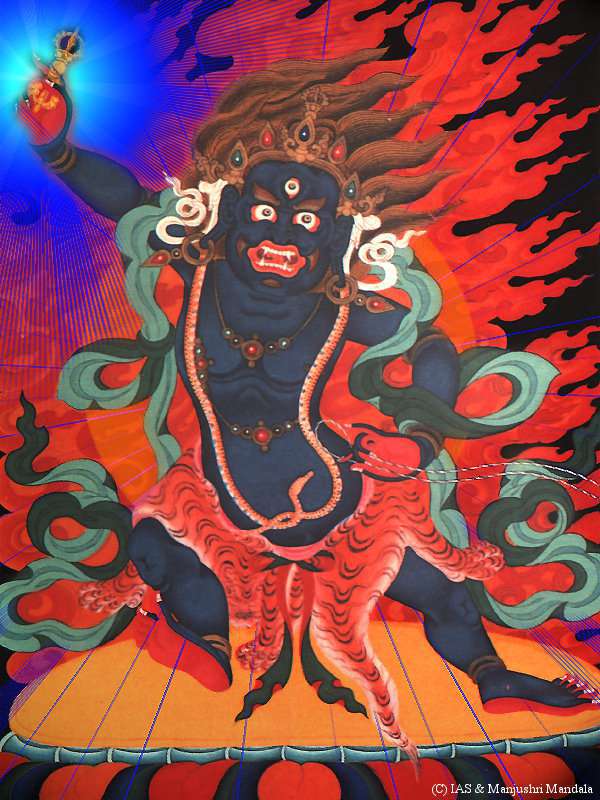
“The first necessary (and much misunderstood) stance is the need to remain ‘centred’, self-aware, to retain one’s ‘spirit’, … to seek an uninterrupted stream of consciousness/awareness whatever may happen, be it calamity, death or rebirth/becomings. It is a channelling process/tendency, an identification of the self as separate/disengaged from the rest of the universe.
The second is the need to transcend the human view-point, to realise the narrowness, arrogance and ultimate impotence of one’s present perception and to seek a re-alignment of one’s will/vision to that of the universe/void/chaos flow. It is a diffusing process, an identification with something larger than the human perspective (that can, unchecked or abused, lead to false bliss, a nirvanic torpor, a capitulation of drive/energy).
Held/practised together these two polar opposites create a third, highest stance. As usual the tantrists have a word for it. The word ‘vajra’ or ‘dorje’ can either mean a diamond ie- that which is compact/focused, symmetrical/crystalised, unbreakable, immutable, untarnishable (part of the drive to eros/control, order, possession) or a thunderbolt ie- that which is frightening, all-powerful, ego-destructive, disintegrating (part of the drive to thanatos/disorder, ego-death). ‘Vajra’ therefore may also be held to mean both stances (diamond-eros and thunderbolt-thanatos) together/simultaneously. This captures nicely the feel of the third stance so let us call it the vajra-awareness. As a bolt of lightning (the thunderbolt) strikes the earth, swift, random, brilliant (ILLUMINATING!), so too must the vajra-awareness be instantly in response, cultivated to be active/reactive to changing emotional states, rebirths, disasters and environments, being one with the lightning, being the lightning, flowing at one with all but retaining the diamond-hard yet infinitely flexible self-ness in the midst of conditions, manifestaions and becomings. The vajra-awareness is what it touches yet it retains its self-ness, wherever it alights there is totality and purity, where it is not are ignorance and eventual suffering.
The vajra-awareness, then is a conscious integration/inter-action with all that is – an eternal balance between self-knowing/posession and immersion in the ceaseless flux of the universe.“ (Julian Wilde 1999: The Grimoire of Chaos Magick)
This is what has to be done. One of the most important tasks of that Great Work is the attainment of the Knowledge and Conversation of the Holy Guardian Angel. In terms of Germanic Soul-Lore this part of the Magician’s Psyche is called the Fylgja or Fetch. It can be contacted by certain methodologies like this one. The relationship to that entity (HGA, Augoides, Dæmon, Genius, “Totem”, Deep Mind or Fylgja) is a vital part of one’s initiatory process. The HGA / Fylgja is often thought of as a non-human intelligence or a seperate being that carries in it all the ancestors’ pasts and holds the individual’s fate.
“As to why such a relationship is vital to cultivate, even in early stages of one’s Rune Work, that’s perhaps easier. I’d say that the idea of the complex, multifaceted Self — the plural Soul — is one that is absolutely key to deep understanding of and practical work with the Northern Mysteries (and Indo-European mysticism in general). It’s also one of the ideas that has been most thoroughly abolished from the modern, materialist concept of the self. We clearly yearn for it though, and it consistently emerges in pop culture and fantasy literature (think of the daemons in Phillip Pullman’s His Dark Materials series, and I’m sure other examples will come to light). It is a very difficult task to learn to think of ‘One’s Selves’ rather than ‘Oneself,’ but when we can do so, we come to know, rather than to believe, that we are more than we seem. And we move farther and faster along the road of personal transformation in the Germanic Tradition.” (Ristandi)
Such a transpersonal guide is hidden in the soul-complex and to be discovered by those who travel along the Runic pathways that lead down, around and up the Tree. This part of the Soul is non-local in the sense of quantum mind. To say it more accurately: it’s here in Midgard and there in Asgard simultaneously — the ‘Realm’ of Awakened Consciousness that might be (according to “metaphysics of ‘substance'”) / do (according to “all things flow”-process philosophy) in non-local ‘hyper-space’ beyond time, connected with the other eight worlds of the map of the multiverse, f.e. as represented by the Chaos Star (the multi-directional expansion of consciousness from a central still-point). Um mik ok í mér Ásgarðr ok Miðgarðr! From the point of view of the Germanic Soul-Lore, that C. G. Jung helped to dig up, this entity, the Fylgja, does not die because it already exists in an eternal dimension not bound by the laws of time and space, like Jung already suggested. And, apparently, most cosmological and psychological maps, especially those influenced by shamanic lore, implied something along those lines. Michael Kelly, who worked a lot with the Celtic soul model, says:
“We may now gain a perspective on what may cause an active shade or ghost to linger, if an attachment is still felt toward a loved one who embodied the deceased’s Other on the physical plane. But as I considered the soul in the context of Desire, I realised that the féin does not pass from this world into the magical realms upon physical death. Why not? Because it is already there and it always has been. The sense of Self is not and has never been bound to the physical body. Even in the most dull and unimaginative of people, it indulges in daydreams, it dreams while the body sleeps and it creates new worlds within the imagination. The féin resides permanently in the magical realms and it interfaces with the physical body through the other parts of the soul that we have described. Upon death, it draws several of those parts back to itself to one degree or another.”(Michael Kelly 2009: Apophis)
In Sweyn Plowright’s book True Helm Ian Read puts forth the idea (in the foreword) that upon following the guidelines in this book “you may create such a strong being (that we call hamingja) and may even, upon death, join those greatest warriors … in Valhalla.” Ultimately, I come to understand it in such a way that the Hamingja — the life force and soul power of the magician — may become so strong in the process of individuation that even upon death it will survive.
“But exceed! exceed! Strive ever to more! and if thou art truly mine — and doubt it not, and if thou art ever joyous! — death is the crown of all. Ah! Ah! Death! Death! thou shalt long for death. Death is forbidden, o man, unto thee. The length of thy longing shall be the strength of its glory. He that lives long & desires death much is ever the King among the Kings.” (AL II, 71 – 74)
So, from a Germanic point of view, the Fylgja (unique to an individual, but nevertheless completely independent of him / her) and the Hamingja (later to become associated with one’s indwelling luck) are (semi-)autonomous ‘entities’ and yet portions of the individual’s psyche that are immune to physical death. What happens to the Self? Can it unite with the Fylgja and Hamingja? Does it continue to exist after death, like Kelly suggests in his Celtic soul model? Or is it rather an illusion as suggested in the teachings of Nagarjuna and as expressed in the idea of pratītyasamutpāda (dependent origination)? I don’t know, fellow traveler. It’a Mystery hidden in your Soul. Seek it!
“Consider the lillies of the field…” (Matt. 6: 28)
Consider the carnage and massacre
Consider the love and embraces
Consider the hangingred skies
Consider the pain of your enemy
Consider the hatred of your friend
There, oh there, there is the land
All the musics shall combine
All the daughters are no longer brought low
They are araised
In brightfiregodgiven they rejoice
And those who deny this world
Is the soul of the unbroken one
Lie
This is indeed Paradise
(Come I shall show you where
The stars give birth and sleep)
And all around you is the warm bluegreen breath of heavens
Do not fear
Around you is the vast blueblack space of stars
Do not fear
This is the great ocean
On which the endless waves crash down
God is not dead
There is no death I say
(Come I shall show you where
Dreams go to when they die)
Hurry now; the sun is descending
The shadows wait to play
Current 93, Of Ruine Or Some Blazing Starre — The Broken Heart Of Man (1994)












 Donovan and I celebrated a truly marvellous Thorrablot yesterday. One of the most brilliant ritual experiences I’ve ever had – we’re on such a strong shared wavelength and what an honour it is to know him.
Donovan and I celebrated a truly marvellous Thorrablot yesterday. One of the most brilliant ritual experiences I’ve ever had – we’re on such a strong shared wavelength and what an honour it is to know him.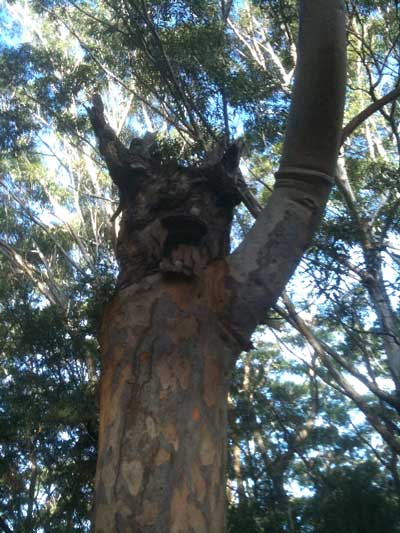 Wyrd trumps Will
Wyrd trumps Will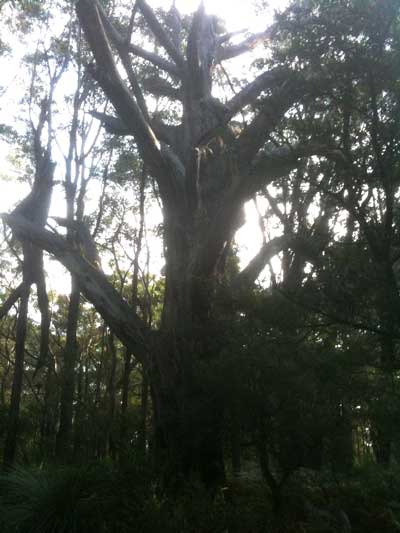 We drank toasts of delicious mead, charged with lashings of chanted Thurisaz runes. We laughed and prayed and affirmed and quaffed. We drenched the hammer and offered it up, our sacrifice. We splashed mead on rock, tree, sky, sea, cloud, every hidden delight of that sacred place. We offered our gratitude liberally.
We drank toasts of delicious mead, charged with lashings of chanted Thurisaz runes. We laughed and prayed and affirmed and quaffed. We drenched the hammer and offered it up, our sacrifice. We splashed mead on rock, tree, sky, sea, cloud, every hidden delight of that sacred place. We offered our gratitude liberally.